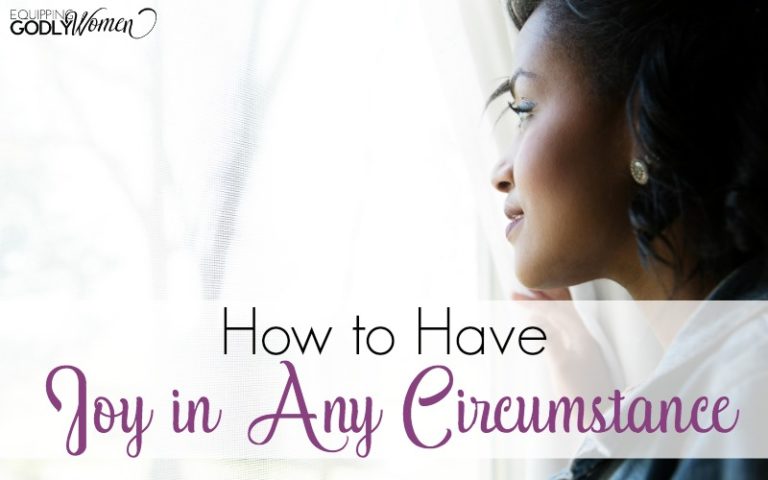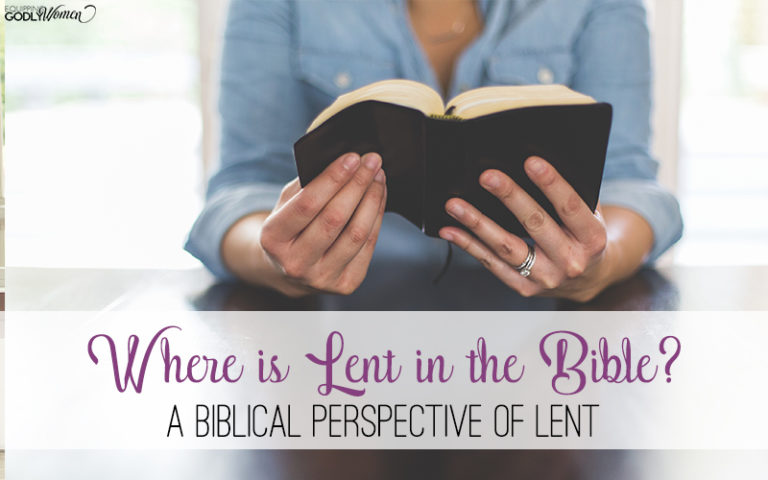What Does the Bible Say about Witchcraft?
It’s important for every parent to not only know what the Bible says about witchcraft but to prayerfully consider what that means for their family.
Witchcraft isn’t a concept relegated to the ancient past or to storybooks. You or your children may have friends, neighbors, or coworkers who identify as Pagan (a polytheistic or pantheistic, often nature-worshipping religion) or Wiccan (a form of pagan religion often focused on seasons, cycles of the moon, rituals, magic, and shared gatherings). There are variations in Wiccans, some that emphasize their devotion to nature over magic while others who lean more heavily toward ritual and spells.
Even people who don’t formally practice witchcraft may casually engage in witchcraft-adjacent activities that may appear to be harmless games or culturally acceptable carnival fun. Most Christian parents won’t hesitate to forbid their children from actively engaging in what we traditionally consider witchcraft—spell casting or sorcery. Harder are question about allowing children to engage with stories where witchcraft is central, playing games based on dark magic, or visiting the Wiccan neighbor.
In this article, we’ll explore what the Bible says about witchcraft as well as steps to help you develop biblical guidelines for your family and communicate those guidelines to others.
What Does the Bible Say about Witchcraft?
To get to the point: the Bible forbids followers of God to engage in witchcraft of any form. How do we reach that conclusion?
1. Witchcraft Was Punishable by Death
First, the punishment in the Old Testament for engaging in witchcraft, necromancy (communicating with the dead), or consulting a medium was death.
“You shall not permit a sorceress to live.” (Exodus 22:18 ESV)
“A man or a woman who is a medium or a necromancer shall surely be put to death. They shall be stoned with stones; their blood shall be upon them.” (Leviticus 20:27 ESV)
“So Saul died for his breach of faith. He broke faith with the Lord in that he did not keep the command of the Lord, and also consulted a medium, seeking guidance. He did not seek guidance from the Lord. Therefore the Lord put him to death and turned the kingdom over to David the son of Jesse.” (1 Chronicles 10:13-14 ESV)
The New Testament church of Jesus doesn’t stone people or put sorcerers to death but these Old Testament laws help us see that God has issued strong commands against practicing witchcraft.
We worship a merciful, loving, just, and holy God. When He commands death for certain practices, we need to respect His perspective. We may not see the danger of “dabbling,” but God appears to be warning against His people engaging in sorcery, necromancy, or engaging mediums.
Similarly, our children may not see the danger of “dabbling” in drugs, but we certainly see them as potentially life-threatening. We want our children to trust us just as God wants us to trust Him.
2. God Warned the Israelites Not to Engage in Forbidden Practices
Second, God warned the Israelites not to engage in the practices of the idolatrous people in the lands around them and provided a detailed list of forbidden activities in Deuteronomy 18:9-14 ESV:
“When you come into the land that the Lord your God is giving you, you shall not learn to follow the abominable practices of those nations. There shall not be found among you anyone who burns his son or his daughter as an offering, anyone who practices divination or tells fortunes or interprets omens, or a sorcerer or a charmer or a medium or a necromancer or one who inquires of the dead, for whoever does these things is an abomination to the Lord. And because of these abominations the Lord your God is driving them out before you. You shall be blameless before the Lord your God, for these nations, which you are about to dispossess, listen to fortune-tellers and to diviners. But as for you, the Lord your God has not allowed you to do this.”
The people of God are to be holy or “set apart,” and that includes refraining from certain practices, especially those that involve the occult or witchcraft. The Israelites were to trust in and rely on the Living God and not attempt to access other powers to foresee or control their futures, even if their neighbors saw no harm in these practices.
3. The Holy Spirit Remained Consistent in the New Testament
Third, the Holy Spirit remained consistent in the New Testament. The apostolic writers issued similarly strong warnings about witchcraft and other occultic practices.
“Now the works of the flesh are evident: sexual immorality, impurity, sensuality, idolatry, sorcery, enmity, strife, jealousy, fits of anger, rivalries, dissensions, divisions, envy, drunkenness, orgies, and things like these. I warn you, as I warned you before, that those who do such things will not inherit the kingdom of God.” (Galatians 5:20-21 ESV)
“The one who conquers will have this heritage, and I will be his God and he will be my son.But as for the cowardly, the faithless, the detestable, as for murderers, the sexually immoral, sorcerers, idolaters, and all liars, their portion will be in the lake that burns with fire and sulfur, which is the second death.” (Revelation 21:7-9 ESV)
“Blessed are those who wash their robes, so that they may have the right to the tree of life and that they may enter the city by the gates. Outside are the dogs and sorcerers and the sexually immoral and murderers and idolaters, and everyone who loves and practices falsehood.” (Revelation 22:14-15 ESV)
The apostles’ writings make it clear that people following Jesus must not engage in sorcery.
The Bible doesn’t deny the existence of dark forces or powers, not in either testament. That, in itself, should give us pause. There’s mention of court magicians in Old Testament times (see Exodus 7:11 or Daniel 1:20) and there is a record of sorcerers and fortune-tellers encountered by the early church in the New Testament.
In Acts 3:9-24, Luke tells the story of Simon the magician who stopped practicing magic when he came to believe in Jesus. He was baptized by Philip but when Peter and John came in the power of the Holy Spirit, Simon offered them money for this power, demonstrating that his heart still wasn’t completely surrendered. The apostles called him to repent.
In Acts 16:16-24, Paul and Silas were followed around by a young slave girl who had a “spirit of divination,” in other words, a demon that allowed her to tell fortunes, making money for her owners. Paul commanded the spirit to leave her and she lost her fortune-telling ability, angering those who had profited from her skills. This resulted in beatings and imprisonment for Paul and Silas. The fact that they were willing to risk that to free this girl should tell us their opinion of divination.
In Acts 19:11-19, Paul’s ministry in Ephesus was filled with power so that many were healed and freed of demonic oppression. Some of the Jews who didn’t know Jesus tried to use His name to perform exorcisms but the demons inside one man turned on them and beat them up. When this story became known, many others repented of these practices. “And a number of those who had practiced magic arts brought their books together and burned them in the sight of all. And they counted the value of them and found it came to fifty thousand pieces of silver. So the word of the Lord continued to increase and prevail mightily” (Acts 19:19-20).
From just this sample of Bible passages and stories, it’s clear that what the Bible says about witchcraft, sorcery, fortune-telling, magic, necromancy, and other practices such as divination is that they are forbidden to believers.
God doesn’t offer extensive explanation, but from these examples, we shouldn’t need any. It’s clear there are dark forces or powers opposed to God at work in the world and connecting with them can be dangerous to body and soul. We can also gather that those who continue in these behaviors are largely driven by sinful desires such as greed, power, selfish knowledge of the future, or control.
What does this mean for parents of today?
Creating Guidelines around Witchcraft and Occult-Adjacent Activities
It’s not hard for most Christian families to determine they will not engage in witchcraft, sorcery, or in consulting the dead. Still, while others around us may not be practicing sorcerers or witches they also may not see anything wrong with calling a psychic, reading tarot cards, playing Ouija board, or even casting the occasional spell or participating in a séance. Because of this, we must prepare our children and equip ourselves with respectful, loving responses.
1. Read the Scriptures mentioned in this article and discuss them with your spouse, your pastor, and/or mature believers in your life.
How do you see them applying to modern-day forms of witchcraft or occult-adjacent practices such as certain party games or carnival activities?
2. Prayerfully consider what guidelines God would have your family practice.
Factor in the ages of your children but also their personalities. For instance, from an early age, my son became emotionally immersed in whatever he was reading and often developed strong identifications with main characters but my daughter was not as easily absorbed into fantasy worlds. Our guidelines, though, had to consider how easily influenced my son could be by stories, games, and movies.
Some families live in areas where there are many psychics, mediums, or even covens of witches while others live in places where that activity is not as apparent. Look at your situation with an analytical eye. Create thoughtful, simple guidelines for your family’s make-up and circumstances.
3. Consider how you will communicate your family’s guidelines to others in love.
This is especially important when many people see no harm in the activities around which you have set boundaries for your children.
Explain to your children, “Other families and children are free to participate in witchcraft but because of what we understand the Bible to say, our family is not. If we’re not around, you can simply tell other people, ‘No, thank you. That’s not an activity consistent with my faith.’”
Obviously, if they feel pressured, encourage them to reach out to you. The older the children, the greater will be the need for understanding the “whys” behind these guidelines and expanding their ability to defend their position with gentleness and grace.
The Bottom Line
The best defense against our children being drawn into witchcraft or the occult is prayerful, loving parenting, consistent biblical teaching, and purposeful conversations about our identity in Christ and our belonging in the community of faith.
While interest in witchcraft and portrayal of it in movies, books, video games, and the like are on the rise, we don’t have to live in fear. God has given us everything we need for life and godliness (2 Peter 1:3) And John assures us, “Little children, you are from God and have overcome them, for he who is in you is greater than he who is in the world,” (1 John 4:4 ESV).
You and your family are equipped to navigate the world by faith, even when you encounter witchcraft. Knowing what the Bible says about witchcraft is a foundation that will give you confidence to create guidelines that will grow as your family grows.

Lori Stanley Roeleveld is an author, speaker, coach, and disturber of hobbits. She teaches biblical truth with gentle humor and invites weary believers back to the narrow road through her ministry of words. She’s written six award-winning books with a seventh in process. Though she has degrees in psychology and biblical studies, Lori learned the most from studying her Bible in life’s trenches. Wife. Retired homeschool mom. Mother of adults. Omi to five grandsons. She lives in Rhode Island but you can find her anytime at loriroeleveld.com or loriroeleveld.substack.com.







I tell people to let the Holy Spirit to teach them to discern. It is related to drugs and rebellion, and telling young people not to do it doesn’t always work but He can protected us from the spirit of witchcraft that is prevalent in these days.
So true that satanic forces are all around us. What might seem like a meaningless book or tarot card reading could be innocent, it’s one of those slippery slopes that just get away from us and lead us further into darkness. Important to stay alert and listen to the Holy Spirit on these matters. Being honest with others on the topic is what we are called to do.
Thanks for compiling the many verses on the topic.
In my 20s I played with witchcraft. I can tell you that if you do this be prepared for SERIOUS CONSEQUENCES. It’s disgusting. I refuse to pay for cable or satellite because I can stumble across these ill thought outshows free.
It’s time to get back to having Godly MASCULINE men in the house. We need more PA Ingles (Michael Landen) and fewer RuPauls.
Thank you for sharing part of your story and your experience.